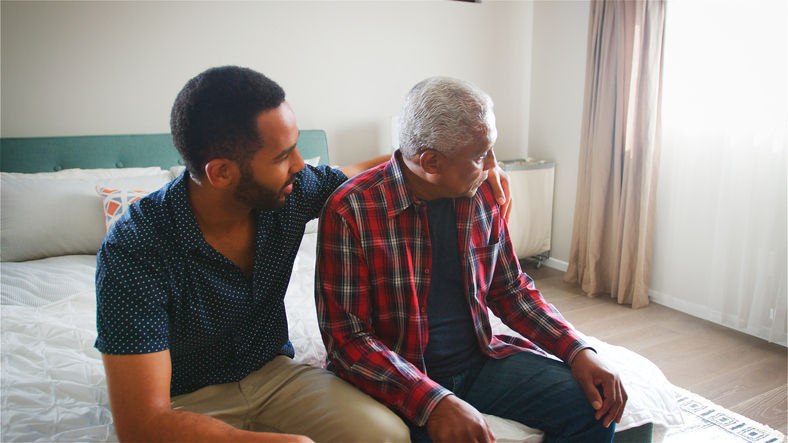The Facts about Unpaid Eldercare
- Elder Care Law Blogger
- Feb 21, 2018
- 3 min read
Updated: Oct 6, 2022

By Rosanne Burke
Unpaid caregivers dedicate countless numbers of hours to caring for elders, either within their family or the community they live in. They are the unsung heroes of our society whose contributions go largely unrecognized and uncelebrated. Every day, caregivers assist seniors with personal care, meal preparation, housework, transportation to appointments, companionship, leisure pursuits, and other activities of daily living. People receiving care are often the parents, grandparents, or a spouse to the caregiver. According to the 2015-2016 American Time Use Survey, in addition to caring for older family members, caregivers are often parents themselves to young children (thirty three percent of parents providing eldercare have a child under age 6), and are usually employed full-time outside of the home (eighty-one percent). The “sandwich generation” is a term that was coined to describe women who act as the primary caregiver to both children and their parents.
Did you know? More facts from the 2015-16 American Time Use Survey:
The majority (fifty-six percent) of eldercare workers are women.
Nearly one quarter (twenty-four percent) of people providing eldercare are between the ages of 55 to 64 years of age, and are close to becoming seniors themselves.
A significant number of eldercare providers (seventeen percent) who are parents do not have the support of a spouse or partner in the household.
People spend an average of 2.2 hours per day providing care for a person they live with.
If you know someone who is providing unpaid eldercare, what can you do to help? Here are ten tips:
Ask the caregiver how you can help. Would they like you to stay with the person they care for, so they can get a few hours of respite or would they like you to deliver the groceries? Don’t assume you know what would be most beneficial to them.
Ask them how they are doing as well as the person they care for. Often, people will inquire about the person receiving the care, and the caregiver is forgotten about.
Acknowledge the vast amount of time and effort the person spends on caregiving. Just hearing “hey, this is a lot for one person to be doing” may provide the caregiver with validation that they need.
If the person is caring for one of your own family members, say thank you. Don’t take their caregiving for granted just because they live closer to the person, or have more time than you.
If you live at a distance to your loved one and the family care partner, ask how you can help. Don’t wipe your hands of all responsibility because you live on the other side of the country. Despite vast geography, there are many ways for you to become involved, and provide support to your family.
Volunteer to be a member of the person’s caregiving team. No one person can provide care 24/7 but a primary caregiver can often find it difficult to ask for help. Step up to the plate and let them know you are there for them on a regular basis, not just the occasional visit.
Don’t have the time to help? Consider how you can contribute financially. Caregiving costs money, and most caregivers invest personal funds to care for their loved one. With missed time at work due to caregiving responsibilities, they can find themselves strapped for cash.
Remind the person to take care of themselves, and let them know it is okay to step away or take a break every now and then. Encourage them not to feel guilty about doing so.
Research community organizations that can provide the caregiver with support. You may be surprised at the resources that are available for free or a very low cost.
Cheer the person up and provide a daily laugh. There’s nothing like a good belly laugh to help a person get through the day!
If you need help caring for an elderly loved one, Takacs McGinnis Elder Care Law may be able to provide support. Just give us a call at 615.824.2571.







Comments